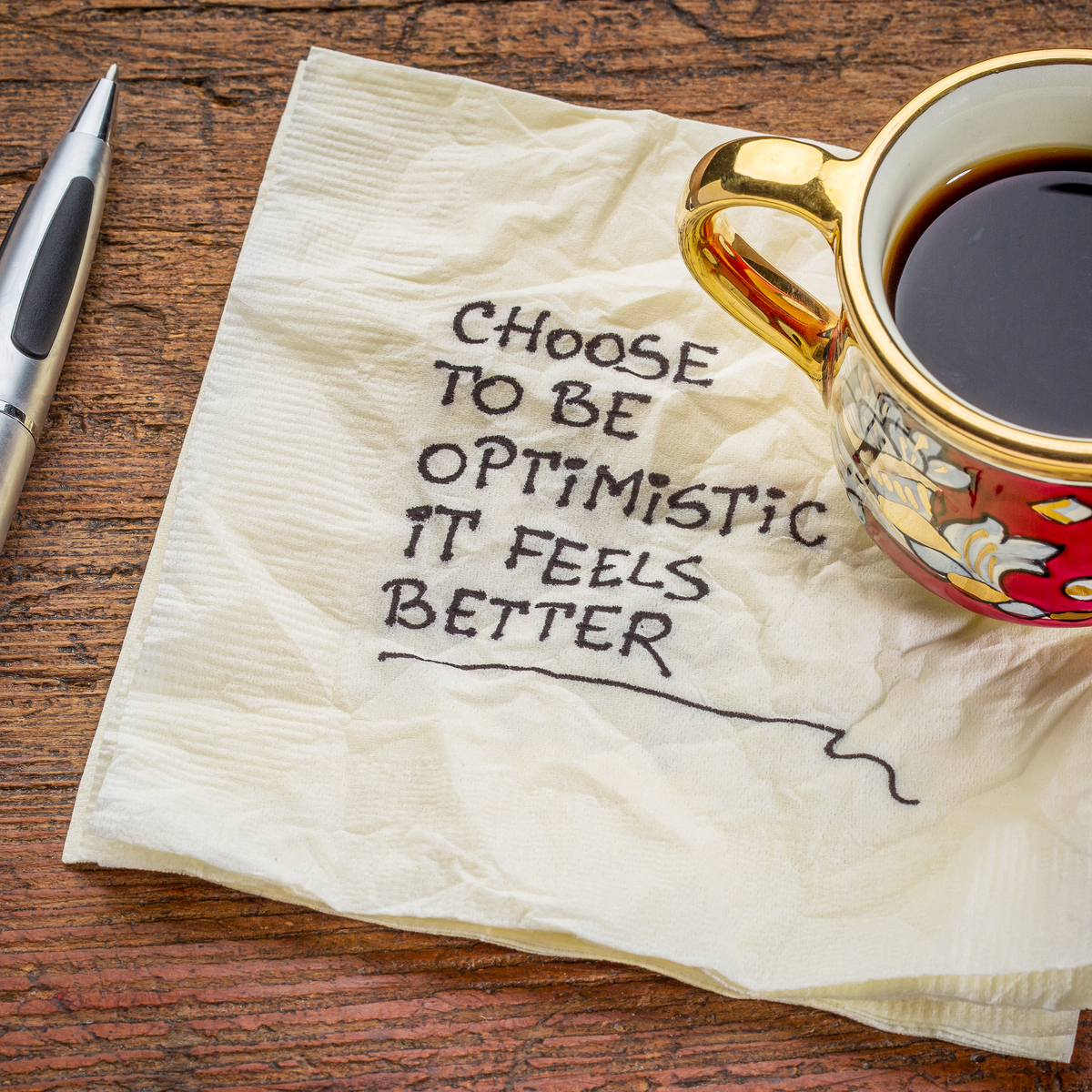Optimism or Pessimism? Your Choice

Mary Kay Mueller has a great book out called Taking Care of Me. Perhaps we should get that for ourselves as a “pre-holiday gift” to keep us focused on how to do just that as we move through the next few months. In it she addresses gratitude and optimism and makes the point that how we see life affects how we feel about life. This just reiterates that how we think affects how we feel. Do you have a positive attitude? Do you expect miracles? Are you optimistic?
Optimism is defined as the inclination to anticipate the best possible outcome for actions or events. In contrast, pessimism can be defined as an inclination to anticipate the least favorable or worst outcome for actions or events. Martin Seligman, in his research, found that there are two factors in human potential. One is our ability and the other is our optimism or pessimism. He found that there was definitely an interplay between our attitudes and our actions which affected how successful people were in their lives.
There have been many studies about how our thinking affects our bodies and how we feel. Optimistic and hopeful thinking relaxes us, increasing the blood flow to the brain, which means increasing creativity and energy according to Mary Kay Mueller. Martin Seligman, in his book, Learned Optimism, cites studies about optimists. He states that optimists are healthier, give up less easily, are more successful in school, on the job, in the playing field, in relationships, have children who are more successful in these areas, and are depressed less often and for shorter periods of time. His philosophy is that if we want to be happy, then we should choose optimism as our choice for our thinking pattern.
And the final point is just that. We have choices in how we live and how we feel, which ultimately affects our lives in every area. So make a choice and begin changing those negative thoughts that you catch yourself thinking and move towards a more optimistic positive perspective on life. This may not be as simple as just deciding to do this; it may be something you have to work at, but it can be done and you are the winner when you accomplish it.
Mueller, Mary Kay (2001). Taking Care of Me.
Seligman, Martin. The Martin Seligman Research Alliance Web site at the University of Pennsylvania. http://www.psych.upenn.edu/seligman/
ABOUT THE AUTHOR

Janie Pfeifer Watson
Licensed Independent Clinical Social Worker
Licensed Independent Mental Health Practitioner- Janie Pfeifer Watson, LICSW, is the founder and director of Wholeness Healing Center, a mental health practice in Grand Island, Nebraska with remote sites in Broken Bow and Kearney. Her expertise encompasses a broad range of areas, including depression, anxiety, attachment and bonding, coaching, couples work, mindfulness, trauma, and grief. She views therapy as an opportunity to learn more about yourself as you step more into being your authentic self. From her perspective this is part of the spiritual journey; on this journey, she serves as a mirror for her clients as they get to know themselves—and, ultimately, to love themselves.
LATEST ARTICLES BY Janie Pfeifer Watson
Subscribe today
Sign up to receive the latest mental health tips and inspiration